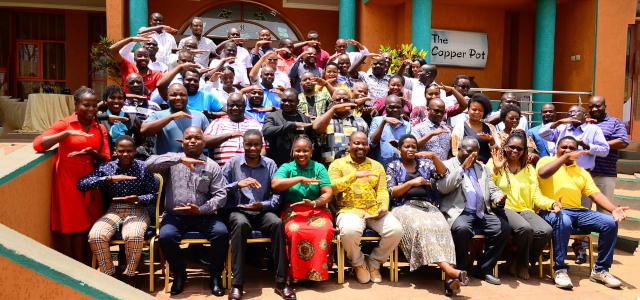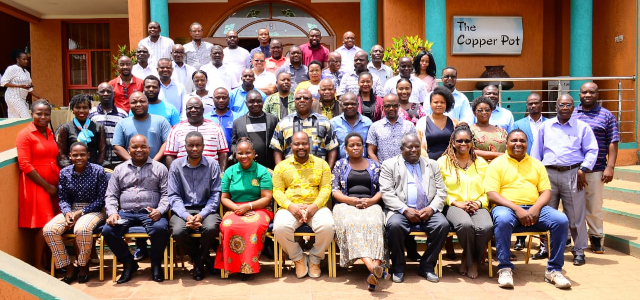The strategies seek to provide solutions to addressing three main barriers including inadequate financing and climate-resilient investments in WRM and WASH, lack of political will and leadership, and weak coordination.
Task forces that have been developing the response strategies met on the 1st and 2nd November in Lilongwe to finalise the costing of various activities in the strategies. The task force working on developing solutions to the challenge of lack of political will and leadership is, however, to hold another exclusive meeting to complete some outstanding business regarding the development of the response strategies. All groups were supported by a financial consultant Mr. Barnet Phiri.
Officially opening the meeting on 1 November, Dr. Max Wengawenga, Deputy Director of Planning in the Ministry of Water & Sanitation, commended the dedication demonstrated by the taskforce members throughout the process.
“Task force members have demonstrated a lot of commitment to this very thorough process and we do not take that for granted. This demonstrates and assures us that the response strategies will be owned by all stakeholders within the sector, such that implementation will be easy,” said Dr. Wengawenga.
Task force membership was drawn from all the country’s regions and includes people from various backgrounds within the water and sanitation sector. These include those in public, private, NGO, and academic among others.
On Friday, 3 November, the Ministry, in collaboration with GWP Malawi, organised a preliminary validation workshop of the strategies. Regional stakeholders who participated in the initial consultations to identify the main barriers in the sector attended the preliminary validation workshop to allow them to reflect on whether the strategies would be effective in responding to the barriers which they helped identify.

Participants show the symbol for the High-Level Panel Mind the Gap - Invest in Water Campaign
Participants commended the task forces for being realistic and identifying solutions that would work in Malawi. Some recommended that the strategies should be thorough in ensuring social and gender inclusion. Task forces will now incorporate feedback received during the preliminary validation.
“We will now support the Ministry and the task forces to incorporate feedback after which we will have a national validation workshop by the Sector Working Group before submission at cabinet level. Once all processes have been completed, we will support the Ministry to launch the response strategies officially,” explained Mrs. Deborah Muheka, GWL Malawi Coordinator.
